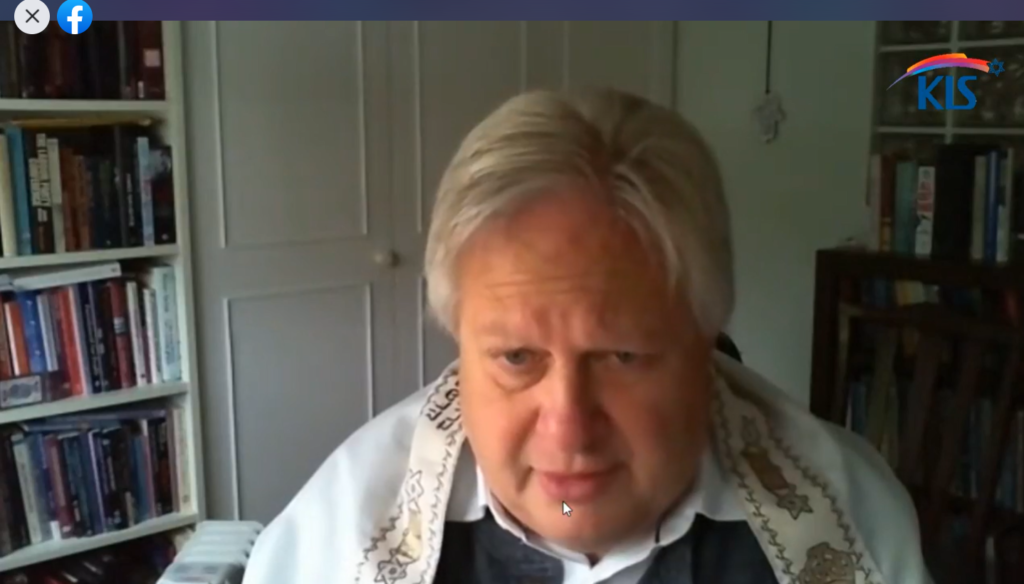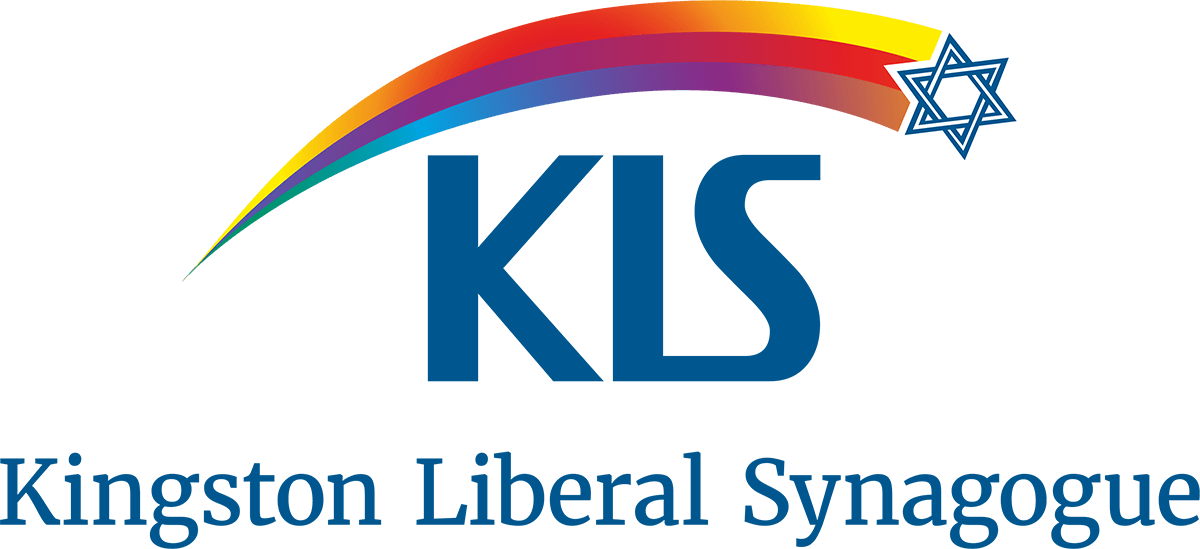Rabbi Danny Rich’s sermon on Shabbat Shuvah
On Shabbat Shuvah – the Shabbat that falls within the Days of Awe – we were honoured to be joined by former KLS Rabbi, Danny Rich, who delivered the following sermon:

Shanah tovah oomtokah: May Rosh HaShanah and the coming year be good and sweet –or at least slightly better and a little sweeter.
I am delighted to be able to greet you and to return to preach at Kingston Liberal Synagogue which I served so happily for some two decades. I was invited to speak on this Shabbat Shuvah ages ago, long before it was known that Wessex Liberal Jewish Community and I would be joining you for Yom Kippur Afternoon, Yizkor and Neilah and certainly before my surprise appointment as a two day per week Covid support Chaplain to Kingston Hospital.
Shabbat Shuvah means, of course, the ‘Sabbath of Return’, and it is a supreme irony that the United Kingdom and indeed the world finds themselves in a situation so challenging –and unprecedented for a generation at least – that we are now operating in a sort of day to day survival mode with no clarity about what it is we might return to. We hear discussions of the ‘new normal’. Will the ‘new normal’ mean empty city centres? Will the ‘new normal’ see us working from home? Will the ‘new normal’ lead to our ordinarily shopping online? Will the ‘new normal’ make masks a daily item of wear? In truth, none of us really knows what normality will become when it returns and the virus has been contained or defeated.
The Hebrew root, shoov, from which we get the word teshuvah can mean a simple physical return to a place but clearly in the context of Shabbat Shuvah it has a deeper sense. It may not mean returning to the previous state but rather is understood as a retuning of a relationship with the Divine or at least a return to a path where that becomes a possibility.
Shabbat Shuvah is not accidently placed by rabbinic tradition in the midst of the Yamim Noraim, the High Holy Days, between Rosh HaShanah and Yom Kippur. Coming sometimes nearer Rosh HaShanah but this year as close as it can be to Yom Kippur, Shabbat Shuvah provides a momentary pause, an opportunity to reflect, to make a connection.
I have often thought that it would have made sense to have had Yom Kippur first with its serious mode of genuine introspection and then followed it up with the joy of the birthday of the world and the sweetness of apples and honey of Rosh HaShanah. Yet the Jewish calendar ordains that, first, we celebrate the capacity of humanity to sustain the world, build parental relationships and look forward to the future and then, only second, are we brought literally down to earth to face our imperfections and our failures on Yom Kippur itself.
Perhaps the creators of Jewish tradition had a psychological insight that it is only when we are on an up, when the world does not seem so terrible can we begin to face who we really are with our achievements as well as our failings. An alternative school of thought argues that only when one reaches the real depths can the work of rebuilding begin but that is, in my view, a theory fraught with danger because one can reach a point where nothing seems worthwhile and everything seems pointless.
I am reminded of a theory I once heard about the Noah story. I am told that artists destroy more of their own pieces of work than they display. In other words an artist only shows a piece with which he or she is satisfied – even if it is not perfect – and it will have gone through many manifestations, all of which will have been drawn over or destroyed. The Biblical argument is that God is the artistic creator of the world who created world after world and on each occasion was dissatisfied with the behaviour of humankind. This, after all, is the beginning of the Noah story in which God has created a world and, not only seen Adam and Eve expelled from the Garden of Eden for poor behaviour or for a lack of faith, but, according to Genesis 6:11, God sees a whole generation which is ‘corrupt and lawless’. The Divine decision is to destroy it and, as Noah emerges from the ark, God makes the rainbow covenant that never again will human society and the natural world be destroyed (Genesis 9:15). Noah’s response is his drunkenness and humiliation which, according to the Torah, is exacerbated by the depravity of his grandson’s generation, known as the Canaanites. The difference in the Noah story is that God has learnt a lesson too. God understands that the Goal may not be perfection but a good enough if flawed product.
What has all this to do with Shabbat Shuvah? Rosh HaShanah, commemorating by tradition the birthday of the world, is the ideal of what life might be – brimming with sweetness, even perfection, that which the Divine artist would like to show – but Yom Kippur is an acknowledgment that perfection exists only in the mind of a creator and that an imperfect model may be good enough.
The Midrash depicts a God who understands this, a God who is aware of human foible, a God who offers not harsh judgment in which we must go to the depths and lift ourselves out but rather a God who is merciful enough to offer a helping hand, to share in the project of teshuvah, of at-one-ment.
The Jew genuinely seeking to improve is like the lost man in the parable told by Rabbi Chayyim of Tzantz.
A man had been wandering about in a forest for several days, unable to find the way out. Finally, he saw in the distance someone approaching. His heart was filled with joy. ‘Now I shall surely find out which is the right way out of this forest,’ he thought to himself. When they neared each other, he asked, ‘Friend, will you please tell me the way out the forest? I have ben wandering about here for several days and I am unable to find my way out.
Said the other to him, ‘Friend, I do not know the way out either, for I to have been wandering here for many days. But this much I can tell you. Do not go the way I have gone, for I know that it is not the way. Now come, let us search for the way out together.
Rabbi Chayyim added, ‘So it is with us. The one thing that each of us knows is that the way we have been going until now is not the way. Now, come, let us join hands and look for the way together.
The process of teshuvah, at-one-ment, is to encounter the presence of God for that presence is waiting for the merest sign as the Midrash declares:
The Holy One says to Israel: Open for me one gate of repentance by as little as the point of a needle, and I will open for you gates wide enough for carriages and coaches to pass through.
